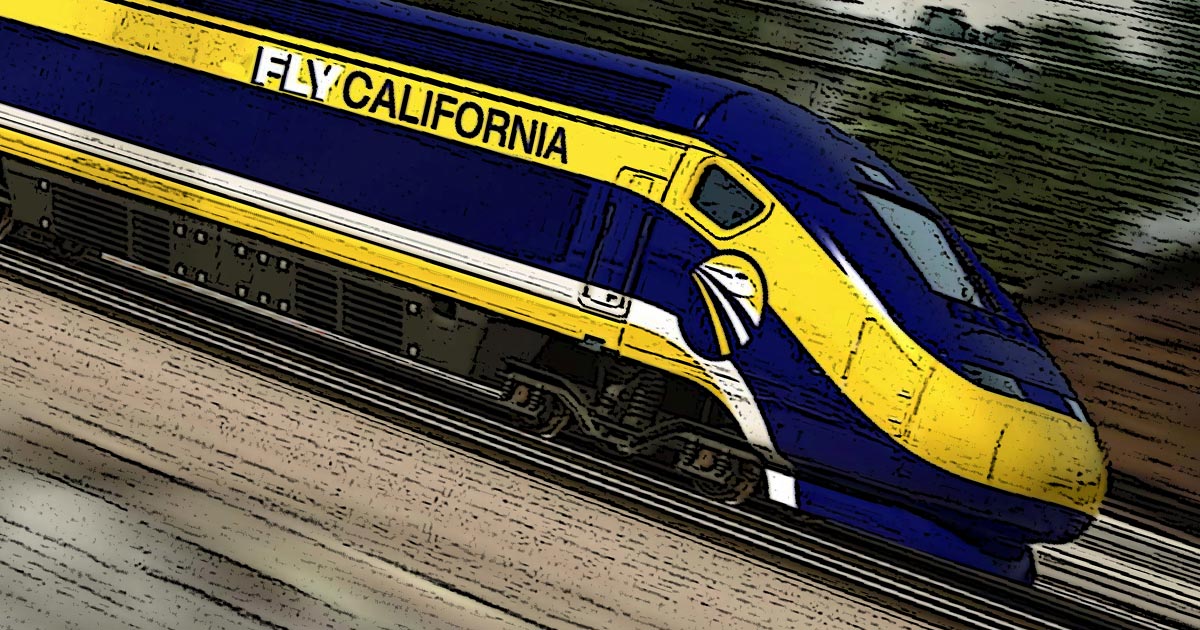Romanticism. The yearning for greatness; the need for speed. Efficiency! It’s all there in California’s high-speed rail project — hopes and dreams and a sense of the grandeur of progress.
And yet the bullet train project, approved by voters in 2008, is a fiasco.
One can blame the voters, I suppose. At least the 53.7 percent who said yes to a referendum authorizing a 9.95 billion bond. Just to get the project started.
But we shouldn’t, really. All the people pushing the bullet train notion (from Los Angeles to the Bay) said that most of the investment would come from private investors. Further, it would require no ongoing subsidies.
Those assurances, however, “were at best wishful thinking, at worst an elaborate con,” writes Virginia Postrel for Bloomberg.
How bad is it? Total construction cost went from a $33 billion to $68 billion — despite route trimming. The first segment, which is understood to be the easiest to build (shooting through an empty stretch), is four years behind schedule, and still lacks necessary land.
The list of failures goes on and on, and includes a dearth of investors. And then there’s the estimate of the company who got the first bid on the project. It says that the line will almost certainly not be self-sustaining.
“The question now,” Postrel concludes, “is when they’ll have the guts to pull the plug.”
Corruption, hope without realism, business as usual — all these are revealed in the project. And wasn’t the second season of True Detective about this? Let’s hope this real-world fiasco ends with less bloodshed.
Californians have already lost enough in treasure!
This is Common Sense. I’m Paul Jacob.











